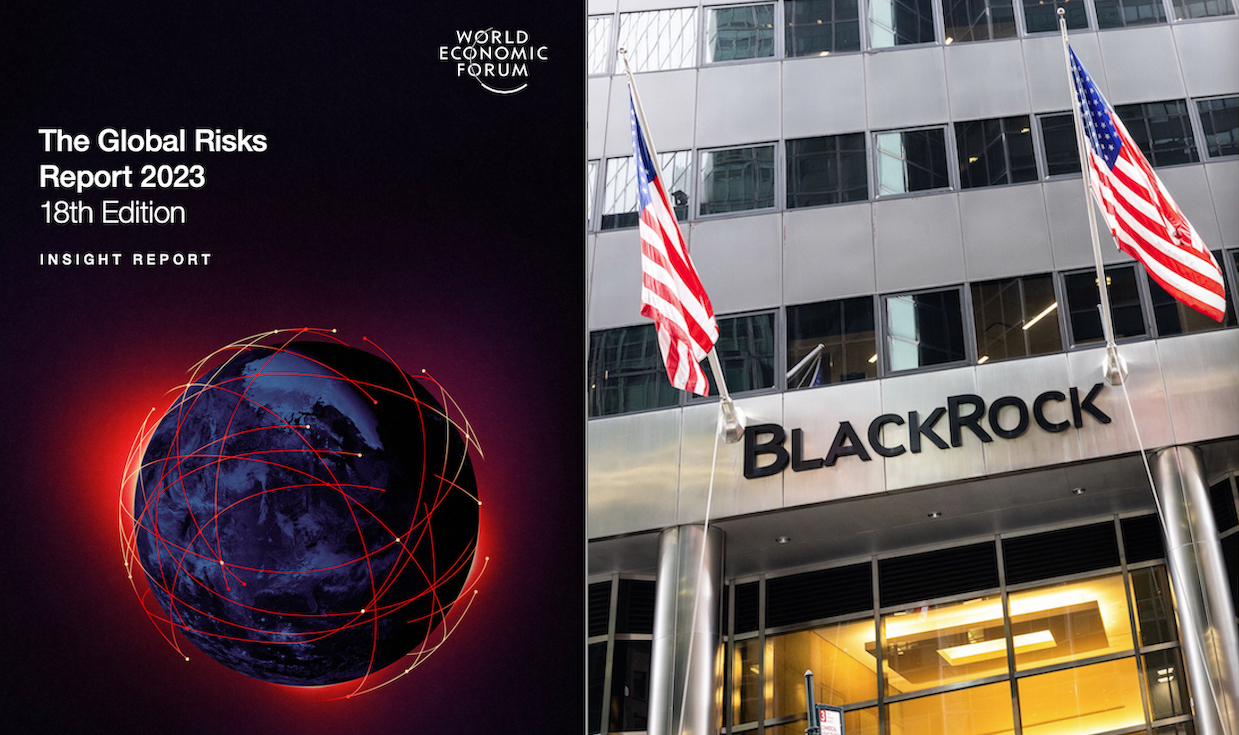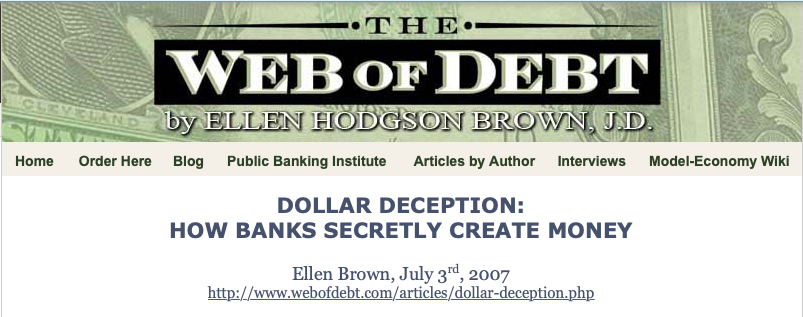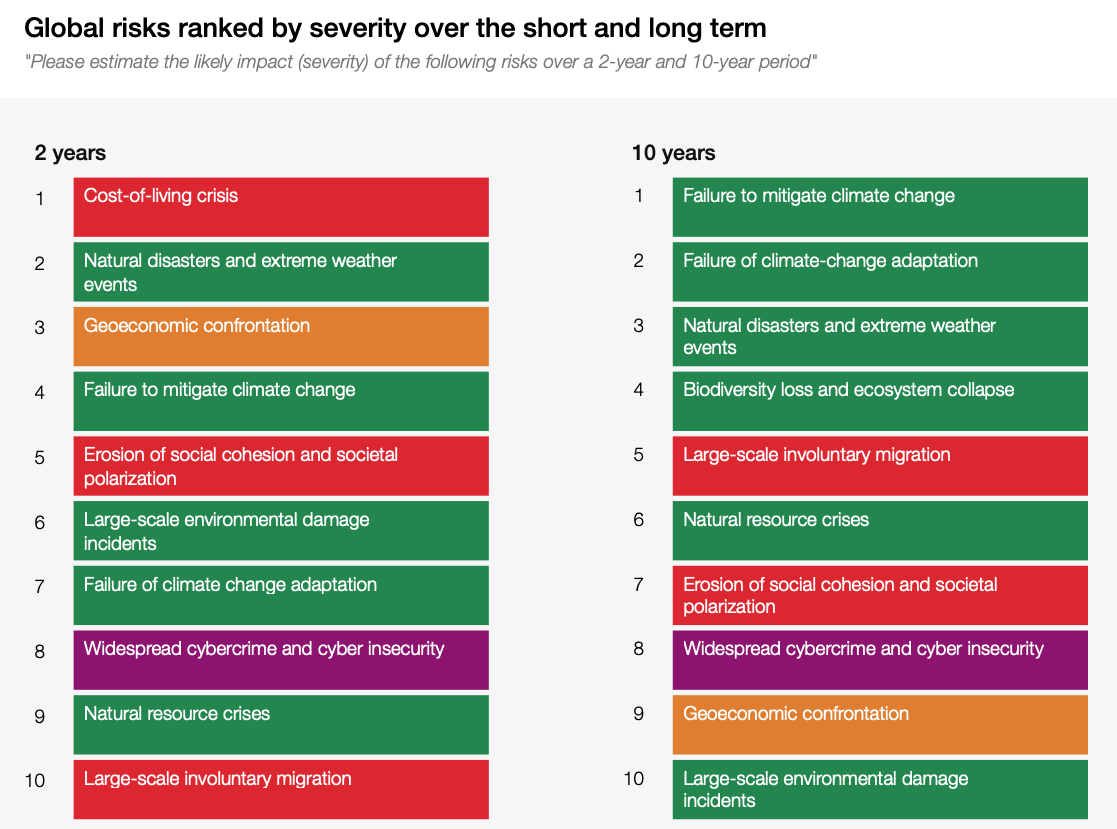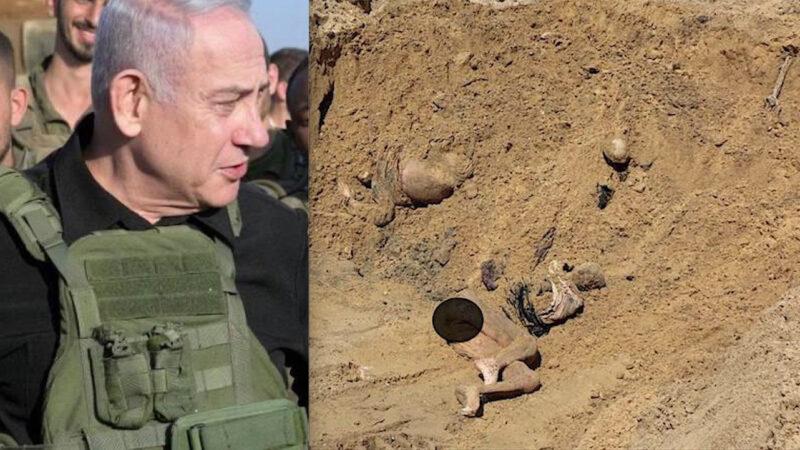GREAT RESET: FED, ECB & IMF ready to Sell the Nations to BlackRock. Devilish Plot “RST“ thanks to Interest Rate Hike

di Fabio Giuseppe Carlo Carisio
«Nearly 90% (33 of 38) of central banks monitored by the Bank for International Settlements raised interest rates in 2022, a dramatic shift away from the loose financial conditions that characterized the previous decade. With a rapid rise in rates, the risk of unintended consequences and policy error is high, with possible overshoot leading to a deeper and more prolonged economic downturn and potential global recession».
This is the alarm raised by the Global Risk Report 2023 of the World Economic Forum released during the annual international summit last January in which two of the major dangers foreseen for the next two years were the Crisis of the Cost of Living and the Geoeconomic Comparison, respectively in first and third place.
The NWO Great Reset Plot Behind Interest Rate Rises
The macroscopic NWO conspiracy behind the global economic disaster aimed at the infamous Great Reset project wanted by Klaus Schwab, president of the WEF, by Bill Gates, great financier of the summit, and by Charles III King of England, by historical tradition leader of the Masonic elite Anglo-Saxon created by the Rothschilds and the Rockefellers, becomes a certainty by reading the chapter on the “Economic Crisis” of the Global Risk Report 2023 and observing the behavior of the world’s central banks.
It seems projected towards the goal of skyrocketing the public debt of states from the most fragile economies or the most indebted (such as Italy) leading them towards a “forced privatization” through a diabolical plan already put on paper by the International Monetary Fund .
This could lead many stocks to go the way of Sri Lanka which has become hostage to the infamous New York investment fund BlackRock which controls most of its public debt.
The rate hike by the Federal Reserve preceded yet another increase, by 0.25% (decided on Thursday), also by the European Central Bank, which is also under pressure from criticism, including political ones, to put an end to this escalation infinity.
The US Federal Reserve has decided to raise interest rates by a quarter of a percentage point, between 5.25% and 5.5%. The decision comes after the Fed interrupted its cycle of rate hikes in June, leaving them unchanged.
«The Federal Reserve approved a much-anticipated interest rate hike that takes benchmark borrowing costs to their highest level in more than 22 years» NBC highlighted.
Brief Reminder on Bank Seigniorage
For those less accustomed to financial matters, we would like to remind you that both the US Federal Reserve and the ECB produce monetary liquidity without having the necessary financial backing in gold and therefore relying on the so-called phenomenon of “bank seigniorage”.

Furthermore, the FED is controlled by private banks that have participated in it since its inception, exactly like most of the National Central Banks which, like Banca Italia, after privatization plans must answer to private credit institutions which consequently also hold the public debt of states determining their reliability.
The Federal Reserve System is composed of several layers. It is governed by the presidentially-appointed board of governors or Federal Reserve Board (FRB). Twelve regional Federal Reserve Banks, located in cities throughout the nation, regulate and oversee privately-owned commercial banks. Nationally chartered commercial banks are required to hold stock in, and can elect some board members of, the Federal Reserve Bank of their region.
I apologize to the economics specialists if, for the sake of brevity, I have made a rough synthesis of much more articulated financial concepts.
But the question is another. If it is understandable that the US raises the cost of money to defend itself from the swings in devaluation following the suicidal maneuvers of the G7 to impose sanctions on Russia for the war in Ukraine, forcing Moscow to develop new alliances in Africa and Asia which project these markets towards even faster “de-dollarisation”.
From a financial point of view, the behavior of the president of the ECB Christine Lagarde who stubbornly follows the course of the FED is totally incomprehensible despite the alarm raised by the World Economic Forum of which Lagarde herself is a member of the Foundation Board.
To understand a maneuver that would appear suicidal, or indeed confirmation of a projection towards the Great Reset, it is essential to re-read the curriculum vitae of the manager herself.
As a lawyer you practiced for 20 years at the international law firm Baker McKenzie of which in 1999, you became Global Chairman. In 2005, you joined the French government as secretary of commerce. Two years later, she was the first woman to hold the position of finance and economy minister of a G7 country. Between 2011 and 2019 she became the first female managing director of the International Monetary Fund (IMF). Since November 2019 you are the President of the European Central Bank.
CORONAVIRUS, BCE AVVOLTOIO SENZA PIETA’: Bazooka Q.E. per spolpare l’Italia col deficit
It is therefore clear that Lagarde, already a protagonist in the use of the dangerous “bazooka” of Quantitative Easing in the midst of the pandemic, certainly has the interests of the IMF more at heart than those of the poorest citizens of the European Union who are already paying dearly price in real estate mortgages the surge in the cost of money post-pandemic which has not corresponded to a dynamic recovery in turnover in the field of small and medium-sized enterprises.
The Tragic Italian Situation
To highlight the situation, let us refer to Italy and take up an eloquent passage from an article in the newspaper Il SOLE 24 Ore of 7 July 2023.
«In March 2023, the total of unpaid installments by almost one million Italian families stood at almost 15 billion. The continuous rise in interest rates adopted by the ECB to counter the race of inflation weighed heavily on household budgets and on the possibility of meeting the payment deadlines of mortgages and loans».
«For the general secretary of the banking union, Lando Maria Sileoni, «it is now clear that the action of the European Central Bank to combat inflation is not generating the desired results. Prices are not falling significantly and the rapid increase in the cost of money is causing a rise in interest rates on loans and mortgages which is putting both households and businesses in difficulty».
The Alert of the World Economic Forum on the Cost of Living Crisis
The Global Risk Report 2023 of the World Economic Forum warned (PDF at the bottom of the article among the sources together with the full report in English):
«The next decade will be characterized by environmental and societal crises, driven by underlying geopolitical and economic trends. “Cost- of-living crisis” is ranked as the most severe global risk over the next two years, peaking in the short term. “Biodiversity loss and ecosystem collapse” is viewed as one of the fastest deteriorating global risks over the next decade, and all six environmental risks feature in the top 10 risks over the next 10 years. Nine risks are featured in the top 10 rankings over both the short and the long term, including “Geoeconomic confrontation” and “Erosion of social cohesion and societal polarisation”, alongside two new entrants to the top rankings: “Widespread cybercrime and cyber insecurity” and “Large-scale involuntary migration”».
As US and EU make the Global Economy Scream, Provincializing Euro-America in the Asian 21st Century
And then he went into even more detail:
«Economic warfare is becoming the norm, with increasing clashes between global powers and state intervention in markets over the next two years. Economic policies will be used defensively, to build self-sufficiency and sovereignty from rival powers, but also will increasingly be deployed offensively to constrain the rise of others. Intensive geoeconomic weaponization will highlight security vulnerabilities posed by trade, financial and technological interdependence between globally integrated economies, risking an escalating cycle of distrust and decoupling.
«As geopolitics trumps economics, a longer-term rise in inefficient production and rising prices becomes more likely. Geographic hotspots that are critical to the effective functioning of the global financial and economic system, in particular in the Asia-Pacific, also pose a growing concern».
Global Britain, Intelligence Hands and King Charles’ Great Reset
In greater detail, the chapter on “Economic Downtown” highlighted:
«Last year’s edition of the Global Risks Report warned that inflation, debt and interest rate rises were emerging risks. Today, governments and central banks – led by developed markets, notably the United States of America, Eurozone and the United Kingdom of Great Britain – are walking a tightrope between managing inflation without triggering a deep or prolonged recession, and protecting citizens from a cost-of-living crisis while servicing historically high debt loads».
In a subsequent paragraph it is added:
«However, for developing economies, there is a risk of further economic distress and tougher trade-offs. Stubbornly high inflation and more disorderly containment will raise the likelihood of stagnant economic growth, liquidity shocks and debt distress on a global scale. Energy importers in particular will bear the brunt of higher energy prices stemming from a strengthened US dollar, but its continued strength is importing inflation worldwide».
Reread in the light of the continuous and obsessive rises in the cost of money by the FED and the ECB, these do not appear to be alarms but rather “strategic objectives” comparable to budget forecasts to which the WEF itself has already found a solution which, just as in the case of Covid vaccines, risks being far more devastating than the problem…
The Tremendous Example of Staged Default in Sri Lanka
«Growth agendas, including the critical pivot to greener economies, have been based on the availability of cheap debt. The extent to which countries can continue to finance development will be dependent on domestic political and debt dynamics» The WEF Global Risk Report 2023 still stands out, which then cites the most striking case… .
«Sri Lanka’s recent crisis provides a very real example of the spiraling risks to human security and health that can arise from economic distress, where a debt default and shortage in foreign currency limited imports; disrupted access to food, fuel, healthcare and electricity; and led to violent protests and the resignation of the President» we can read in the dossier.
The Environmental Cost of the US Superpower’s Economic, Hybrid War Games in Indian Ocean
The financial experts of the WEF, however, forget to highlight that the instability of the Indian Ocean island was artfully created and represents a pilot project of the experimentation of new invasive action tools of the International Monetary Fund supported by the so-called Club of Paris and by the strong powers of the USA.
In fact, Gospa News International has the good fortune to have among its most assiduous collaborators the Sri Lankan professor of social anthropology Darini Rajasingham-Senanayake who works in Colombo and has published more than a dozen articles on the “staged default” of Sri Lanka.
The professor, author of a worldwide appeal with other academics for the cancellation of the debt, analyzed both the causes and the objectives: the main one is to place the island, also strategic from a military point of view in the InfoPacific context at least as much as Italy is in the Mediterranean Sea.
«BlackRock, the world’s largest asset and investment management company with over $10 trillion is the largest holder of Sri Lanka’s opaque ISB debt that caused the country’s Staged Default in April this year. ISBs amounts to almost fifty percent of Sri Lanka’s external debt»
Darini Rajasingham-Senanayake remarked on Gospa News International highlighting a similar situation in Argentina which, precisely because of its economic problems, has asked to join the BRICS, the alliance between Brazil, Russia, India, China and South Africa which has created a alternative financial platform to the IMF thanks to the New Development Bank, of which the sanctions against Moscow for the war in Ukraine has increased the global weight.
The devilish IMF plan to give states to private funds
But are these plans to “privatize” sovereign debt to create geopolitical dominance over the state the result of a random plan? Absolutely not!. The Global Risk Report 2023 of the World Economic Forum explains it very well.
Here are the essential passages of the paragraph “Acting Today” of the chapter on the “Economic Crisis”:
«In recognition of the risks posed to broader financial stability, timely and deeper debt write-downs could allow a faster return to developmental progress for vulnerable countries and render a future default less likely. The private sector could be incentivized to participate in debt restructuring through a variety of mechanisms, including issuing of new bonds with stronger legal protections, loss reinstatement commitments and value recovery instruments – with the latter enabling private creditors to gain from upside developments in debtor countries in the future, such as GDP-linked instruments in Costa Rica, Argentina, Greece and Ukraine».

«Finally, we are unlikely to be able to double down on debt to the same extent to cushion the next crisis. A more proactive approach to countries that are not yet on the verge of debt distress could help mitigate the systemic risk of sovereign debt contagion. Recognition of simultaneous crises – debt, climate impacts and food security – could be integrated into greater flexibility and more concessional forms of financing available to vulnerable markets».
So here is the diabolical solution of the privatization of public debt together with the implicit one of national political autonomy:
«With particular respect to the climate agenda, there is a growing expectation that packages will include grants, rather than rely solely on loans that add to overall debt burdens. Bilateral and multilateral underwriting of risk could also enable much-needed flows of private capital, while support for longer-term projects that can help crowd-in private capital, such as the IMF’s Resilience and Sustainability Trust, is also critical».
BlackRock and the Perils of Project RTD
«The IMF’s mandate is to promote members’ balance of payments stability, as well as foster global financial stability and economic growth. Today, low- and vulnerable middle-income countries confront the challenges of inflation, rising debt levels, and geopolitical uncertainty, as they also face longer-term, structural risks to macroeconomic and balance of payments stability, such as climate change and pandemic preparedness».
This is what the International Monetary Fund writes on the page dedicated to the Resilience and Sustainability Trust (RST) project which is proposed as a panacea from all ills, just as the World Economic Forum has touted it, on whose Board of Trustees also sits Larry Fink, the financier Zionist founder and president of BlackRock who made money on the pandemic thanks to his stakes in Big Pharma, is making money on the Ukraine war thanks to shares in the main corporations of the Weapons Lobby and will soon be able to make even more money on the economic crisis…
Here is the description of the project that will allow private funds to devour public debt with the support and promotion of the International Monetary Fund:
«The IMF’s Resilience and Sustainability Trust (RST) helps low-income and vulnerable middle-income countries build resilience to external shocks and ensure sustainable growth, contributing to their longer-term balance of payments stability. It complements the IMF’s existing lending toolkit by providing longer-term affordable financing to address longer-term structural challenges, including climate change and pandemic preparedness».
WHO, EU Launch New Global Vaccine Passport Initiative: “Death Sentence for Millions”
The IMF’s existing lending instruments support members facing short- and medium-term challenges through two key financing sources: the General Resources Account (GRA) which is accessible to all countries; and the Poverty Reduction and Growth Trust (PRGT) available to low-income countries on concessional terms (currently zero interest rates).
- The RST will complement the existing lending instruments by providing affordable, longer-term financing to contribute to prospective balance of payments stability to enhance economic resilience and sustainability.
- The RST will amplify the effect of the US$650 billion general SDR allocation implemented in 2021 by channeling resources from economically stronger members to countries where needs are greatest.
- This new Trust allows the Fund to broaden its lending support within its mandate, while at the same time limiting risks to members’ financial positions at the Fund by permitting a subset of the membership—those with strong external positions—to pool financial resources that are separate from the Fund’s general resources for the benefit of another subset of the membership—low-income countries and vulnerable middle-income countries.
Here are some of the main features of the new financial instrument.
The RST is a loan-based trust administered by the IMF, with a governance and financial structure broadly similar to that of the long-standing Poverty Reduction and Growth Trust (PRGT). RST resources are be mobilized based on voluntary contributions from IMF members with strong external positions, including those wishing to channel SDRs for the benefit of low-income and more vulnerable middle-income members.
- The financial architecture is designed to ensure the safety and liquidity of contributors’ loan and deposit claims on the RST, which will retain their reserve asset character, while minimizing the need for budgetary contributions.
- Fundraising for the RST aims to secure SDR 33 billion (about US$42 billion) to meet expected loan demand as well as for an adequate reserve account.
- As of October 12, 2022, contribution agreements have been signed with 6 members for a total of SDR 15.3 billion (about US$20 billion), and good progress is being made to finalize contribution agreements toward pledges of SDR 29 billion (about US$37 billion).
Debt Trap of IMF “Economic Hit men” due to Food & Fuel Shortage. Should Sri Lanka de-dollarize?
At the moment, staffing agreements have been reached with our first three countries: Barbados, Costa Rica and Rwanda. The council will likely consider their approval requests by the end of 2022. Good progress is being made with 5 other countries.
BlackRock can already uncork a few Nebuchadnezzar bottles (15 litres…) of Champagne Krug.
Fabio Giuseppe Carlo Carisio
© COPYRIGHT GOSPA NEWS
divieto di riproduzione senza autorizzazione
segui Gospa News su Telegram
MAIN SOURCES
DOLLAR DECEPTION: HOW BANKS SECRETLY CREATE MONEY
WORLD ECONOMIC FORUM – GLOBAL RISKS REPORT 2023
WORLD ECONOMIC FORUM – GLOBAL RISKS REPORT 2023 – Economic Downtown chapter
International Monetary Found RST
GOSPA NEWS – ECONOMICS AND GEOPOLITICS




“FED, ECB & IMF ready to Sell the Nations to BlackRock.”
Excellent news!
JESUS LOVES YOU!
BAFS